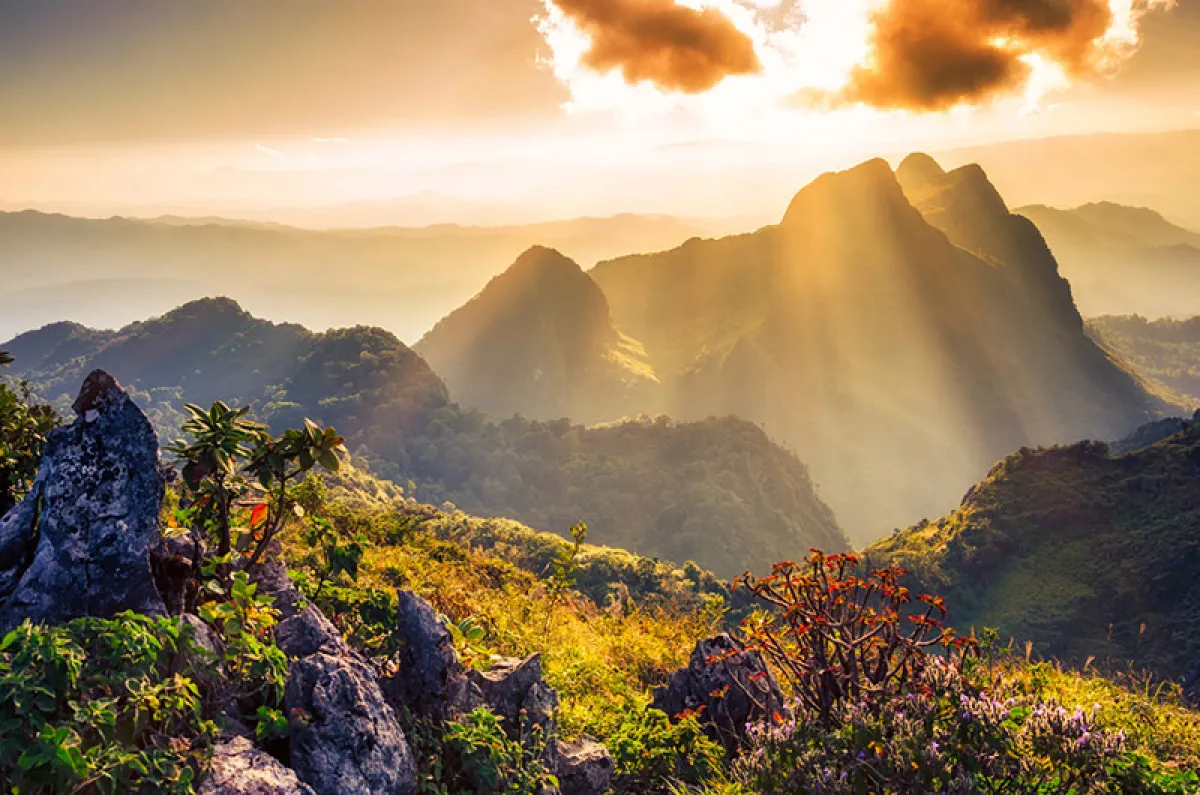
Doi Luang Chiang Dao, Thailand's fifth biosphere reserve and a UNESCO World Heritage Site, is a noteworthy conservation area in Thailand. There are numerous such places which have been declared as World Heritage Sites, and Doi Luang Chiang Dao in Chiang Mai province is the fifth area to have been declared as such by the United Nations Educational, Scientific and Cultural Organization (UNESCO) in September 2021.
Located in Chiang Dao Wildlife Sanctuary, Chiang Dao district, Chiang Mai province, Doi Luang Chiang Dao is the third highest peak in the country. It is characterized as a limestone mountain, standing at a height of 2,275 meters above sea level, and its combined area is more than 536,000 Rai. On Doi Luang Chiang Dao, there is a semi-alpine plant community and it is home to more than 2,000 species of plants, which constitutes about 20% of all plant species in Thailand.
The area also possesses local wisdom of water management and is an example of the mechanism of substituting ecological systems in the Pang Mao area. It has been under the care of Chiang Dao Wildlife Sanctuary, contributing to the restoration of the forest's ecological system for more than 40 years. This area serves as a habitat for 672 species from 358 genera in 91 families, including protected wildlife such as serows, goral, and many more protected species. The likelihood of discovering new plant and animal species in this area in the future is high.
Doi Luang Chiang Dao is also a suitable location for research as it has a research station for wildlife conservation, particularly notable for its success in conserving serows in their natural habitats. Moreover, the area also has a research station at the water source and a research station for highland agriculture.
A biosphere reserve is an area with terrestrial, marine, or coastal ecosystems that has gained international recognition under UNESCO's Man and the Biosphere (MAB) Programme, which is valuable for the conservation of diverse plant and animal species, as well as ecosystems. It can foster sustainable economic and social development.
Currently, Thailand has five biosphere reserves, namely, the Sakaerat Biosphere Reserve in Nakhon Ratchasima province, the Pa Sak-Huai Tak Biosphere Reserve in Lampang province, the Mae Sa-Kog Ma Biosphere Reserve in Chiang Mai province, the Ranong Biosphere Reserve in Ranong province, and the Doi Luang Chiang Dao Biosphere Reserve in Chiang Mai province. The latter is a new global biosphere reserve as per UNESCO and is the fifth biosphere reserve in Thailand.